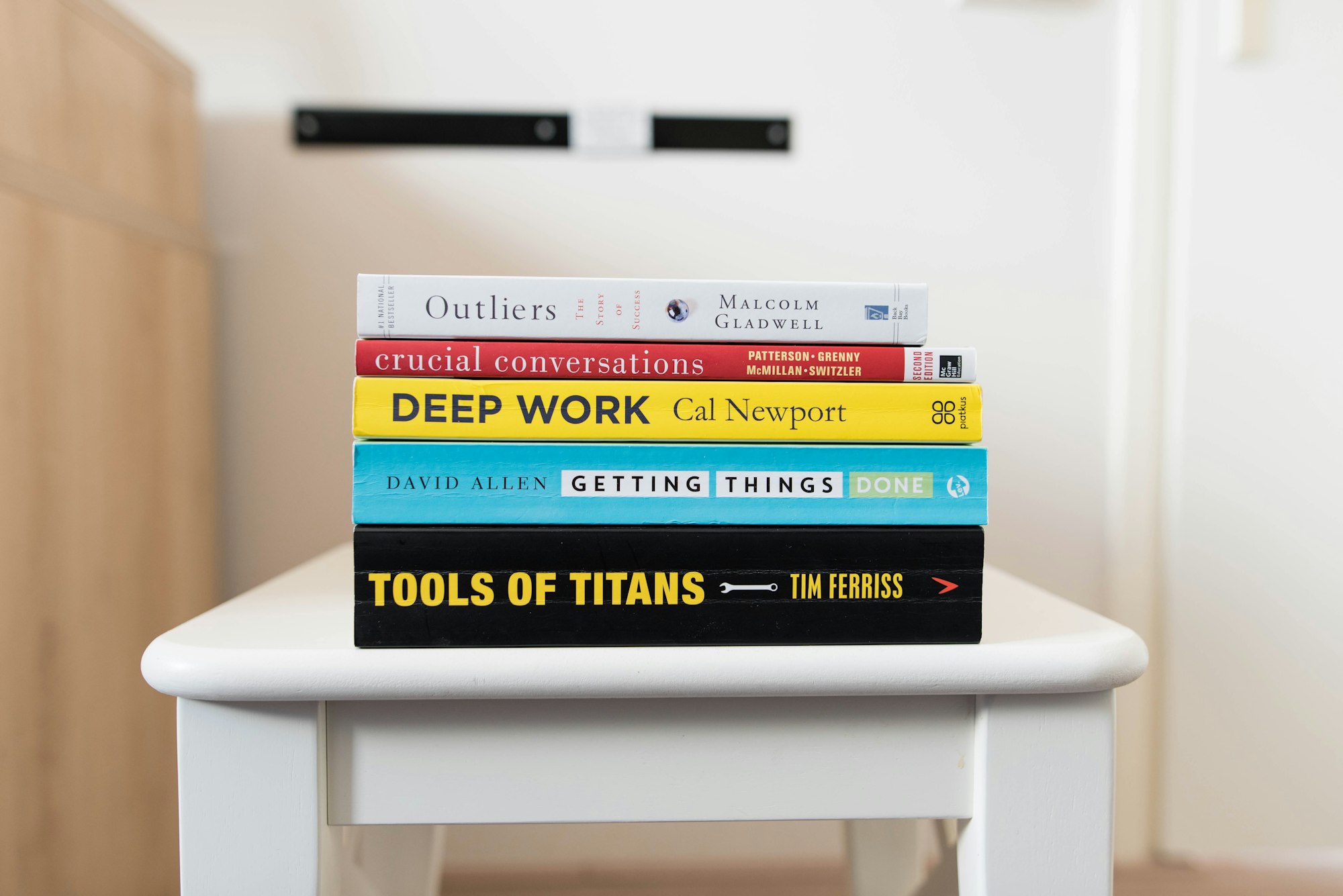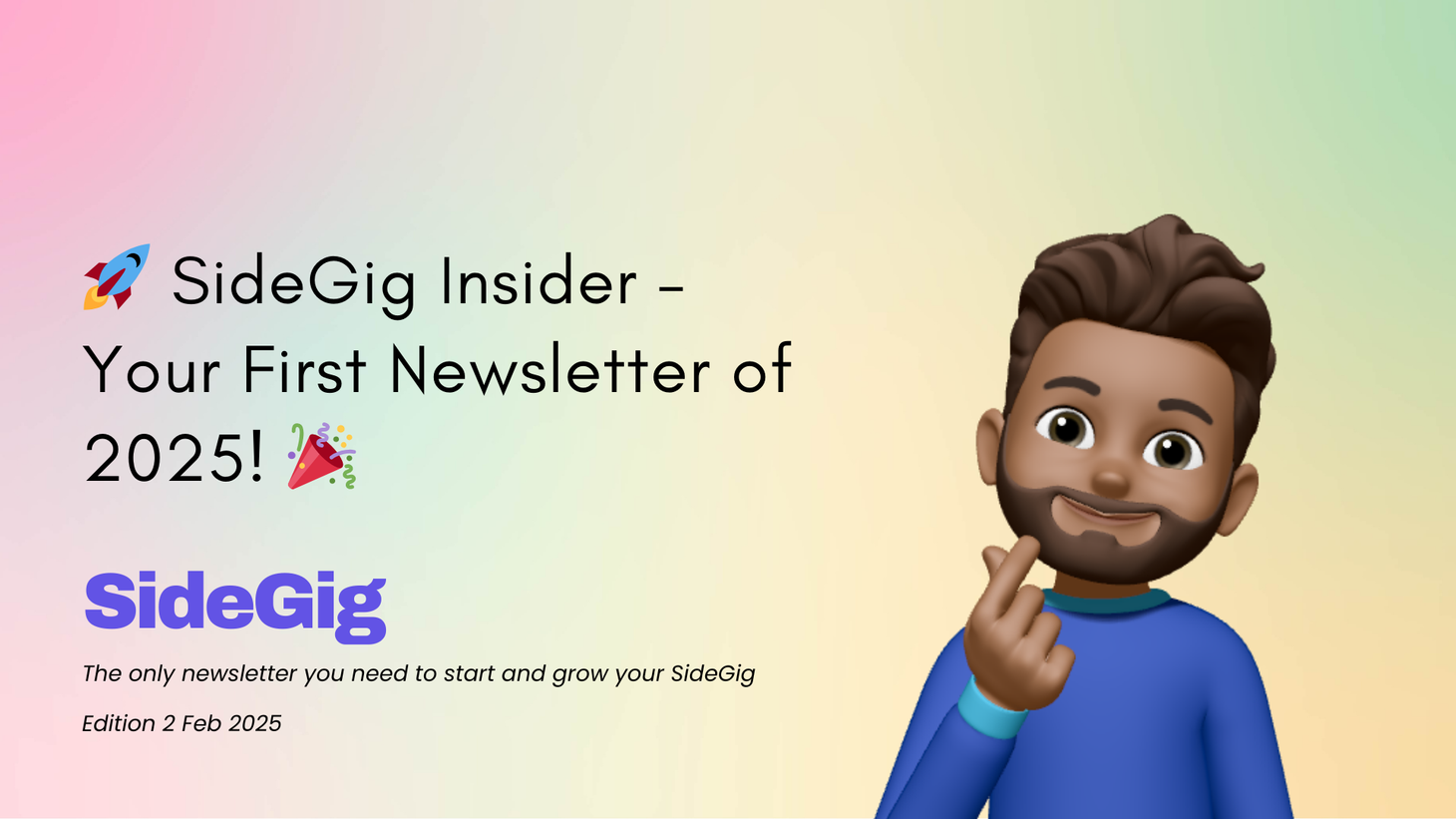Increase your productivity by 200% - 7-day challenge 🎖️
7-day action plan to double your productivity. This included tested methods, tools and hacks to boost your overall productivity.

Hey UpGrader!
This week on Upgrade, I would like to write on my favourite topic when it comes to personal development - 'Productivity.'
Productivity isn't about getting lots of things done (HBR article here), it is about doing great and meaningful things while maintaining a balance between hustle and life. I have been on a journey for the last four years, learning and tweaking many aspects of my life to be more productive but also trying to find an optimised system that allows me to have a great time.

I have created this 7-day actionable plan for you to try. I guarantee they will notice a significant boost in overall productivity while executing this action plan. Alright, let's get started.
Day 1: Prioritize Tasks and Create a Schedule
It's essential to prioritize tasks and create a schedule to manage time effectively.
Methods:
- Time blocking: A technique that involves breaking down your day into blocks of time to focus on specific tasks.
- Eisenhower Matrix: A prioritization framework that helps you categorize tasks based on their urgency and importance.
- Find the best productivity strategy that would work for you here
Tools:
Here are some tricks and tools to help with this:
- Google Calendar is a time-management tool that lets you schedule and organises events and reminders.
- Reclaim: A tool that tracks your daily activities and automatically schedules your tasks and habits.
Elon Musk, the CEO of SpaceX and Tesla, plans his entire day in 5-minute intervals to ensure he maximizes productivity. He allocates time for all his tasks, including meetings, phone calls, and personal time.
More tools
- https://www.kosmotime.com/ - Tracks your activities and gives insights on your time management
- https://www.rescuetime.com/ - Same as Kosmotime but paid
Day 2: Minimize Distractions
Distractions can significantly reduce productivity, making it important to minimize them.
Methods:
- Timeboxing: This is slightly different from time blocking. In this method, you are not only blocking a time in your schedule but allocating a specific time period for certain tasks to stay on track.
- Deep work: It is a mental state where you are fully immersed in a task with more energy, happiness and focus.

Here are some tools and techniques to help:
- Focus@Will: A music service that uses scientific music to improve focus and productivity.
- StayFocusd: A Google Chrome extension that limits time spent on distracting websites.
- https://blocksite.co/ - Try this chrome extension
- iPhone focus setting - iOS users only
Tim Cook, the CEO of Apple, wakes up at 4:30 am to check emails and exercise before his workday. He also practices mindfulness meditation, which helps him stay focused and minimise distractions.
Day 3: Break Up Tasks
Breaking up tasks into smaller, more manageable ones can help increase productivity. Here are some tools and techniques to help:
- Trello: A project management tool that uses boards, lists, and cards to help break down tasks into smaller chunks.
- Things - I use this, and it works well for me.
- Google Tasks - Free and powerful to-do application
- The Pomodoro Technique: A time-management technique that involves breaking up work into 25-minute intervals with 5-minute breaks in between.
- Scheduling apps: Apps like Calendly or Acuity can help you break up meetings and calls throughout the day to keep things more manageable.

Bill Gates, the co-founder of Microsoft, is a fan of the "two-minute rule." If a task can be done in two minutes or less, he does it immediately, which helps him avoid procrastination and stay productive.
Day 4: Prioritise Sleep
Getting enough restful sleep can help you stay alert and focused throughout the day. Here are some tools and techniques to help:
- Sleep Cycle: A sleep tracking app that analyses sleep patterns and wakes you up during a light sleep phase.
- Blue light filter: A feature on most smartphones, tablets, and computers that reduces the amount of blue light emitted to reduce sleep disruption.
- Room darkening shades: Blocking out light in your bedroom can improve sleep quality.
- Autosleep - I use this one and quite powerful with in-depth insights.
Arianna Huffington, co-founder of The Huffington Post, prioritises sleep and even wrote a book about it called "The Sleep Revolution." She believes that getting enough restful sleep is essential for productivity and overall well-being.
Day 5: Take Breaks and Get Moving
Taking breaks and getting up and moving can help improve productivity and reduce stress. Here are some tools and techniques to help:
- Stand-up desks: A desk that can be adjusted to allow you to work while standing up, reducing the amount of time you spend sitting down.
- Stretching apps: Apps like StretchIt (it's paid) can help guide you through stretches you can do at your desk to reduce tension and increase focus. Alternatively, youtube has a few great videos on stretching.
- The 20-20-20 rule: A technique that involves taking a 20-second break every 20 minutes to look at something 20 feet away to reduce eye strain
Day 6: Learn to Delegate Tasks
Delegating tasks can help you focus on your core responsibilities and reduce your workload. Here are some tools and techniques to help:
- ClickUp: A project management tool that lets you assign tasks and track progress.
- Virtual assistants: Outsourcing tasks to virtual assistants can help you free up time for more important tasks.
- Time tracking tools: Tools like Toggl or RescueTime can help you identify tasks that can be delegated and track progress.
Richard Branson, the founder of Virgin Group, believes in delegating tasks to his employees so that he can focus on his core responsibilities. This approach has helped him build a diverse portfolio of successful businesses.
Day 7: Review and Reflect
Reviewing and reflecting on your progress can help you identify areas for improvement and adjust your approach. Here are some tools and techniques to help:
- Weekly reviews: Set aside time each week to review your progress and identify areas for improvement.
- Mind mapping: A technique that involves creating a visual representation of your thoughts and ideas to help you organise and prioritise. I use Miro board for this.
- Gratitude journaling: Reflecting on things you're grateful for can help reduce stress and increase motivation. If you love to write things down, this one is highly recommended here.
Oprah Winfrey, media executive and talk show host, practices daily gratitude journaling. She believes that focusing on gratitude helps her maintain a positive mindset and stay motivated to achieve her goals.
Overall, implementing these tools, tricks, and hacks into your daily routine can help you increase productivity and achieve your goals. Remember to be patient and persistent in your efforts, and don't be afraid to try new techniques until you find what works best for you.
If you like this content, share it with your friends and your thoughts in the comments section below.
SideGig Newsletter
Join the newsletter to receive the latest updates in your inbox.




